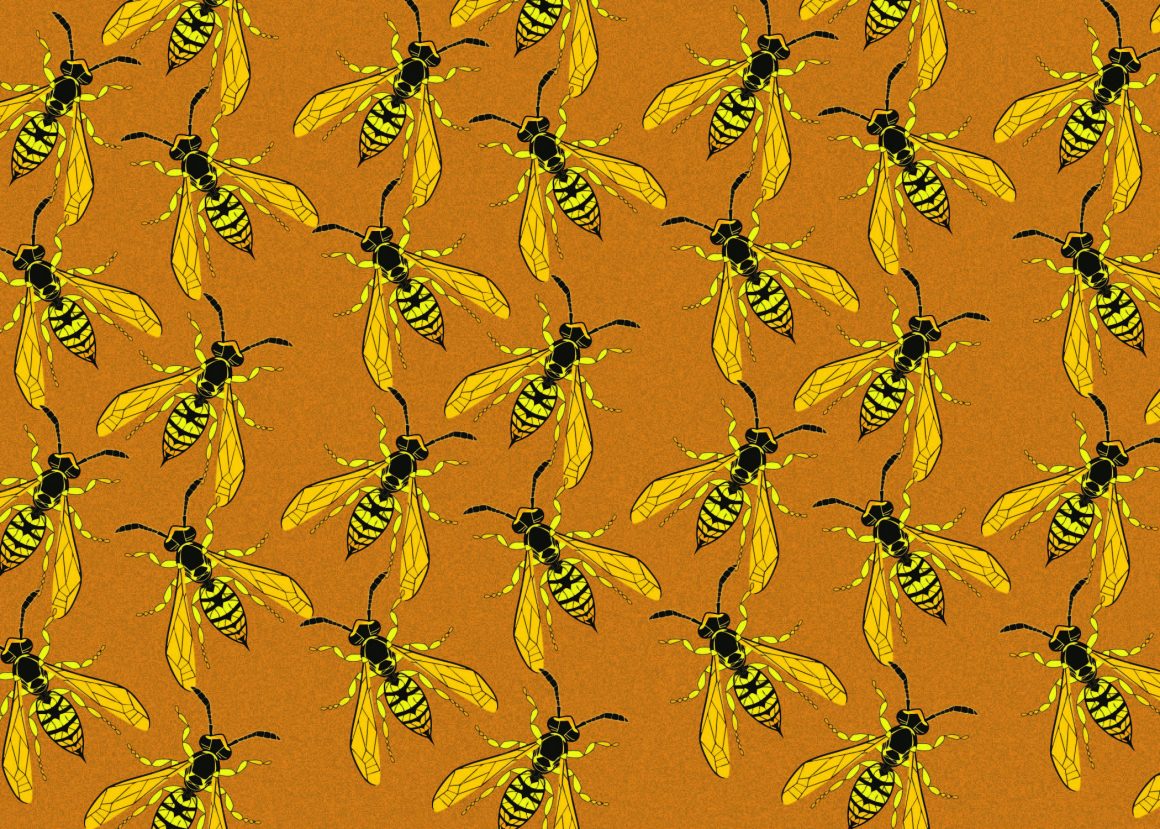
What was with the wasps? A reflection with Dr. Jackie Lebenzon on Alberta’s 2024 wasp boom
By Ilana van der Merwe, September 26 2024—
While others were swatting at wasps and fighting garden aphids this summer, insect physiologist Doctor Jackie Lebenzon of UCalgary’s Department of Biological Sciences has offered insight to the Gauntlet about this past summer’s booming wasp population.
“I am simply trying to use my expertise on how insects function to try and communicate to the public why there are so many wasps,” she said. “All living things are connected. Insects make up to three quarters of all animal species, so they are important for determining how our ecosystem is doing.”
Her studies provide a lens for this summer’s phenomena that looks for causation rooted in the environment — or for what would be for highly fruitful queen Yellowjackets — spring.
“We had a wet early spring which comes with lots of plant life. There was a healthy population of aphids. Aphids secrete a honey dew substance onto the leaves and the adult wasps that are foraging really like that. Which draws [wasps] in, and helps them grow,” Lebenzon said.
On top of a nutrient boost provided by an early spring, Jebenzon expressed that this summer’s heat is also a contributor to heightened wasp numbers.
“It has been a really hot summer. Insects aren’t like us, we can thermo regulate and control our body temperature. Insects can’t. If it’s hot outside, it speeds up all the biological processes inside the insect,” she said.
The efficiency boost this summer’s heat provided wasps also multiplied the wasps’ numbers. Ultimately, spring and summer have offered comfortable conditions for the Albertan Yellowjacket population to thrive. However, Lebenzon argues that although wasps have seen a boost in population, any species can seem more prevalent if one is introducing oneself into their environment more regularly.
“It [was] also really nice out, so people can spend more time outside and are outside later as well,” Lebenzon said.
She also mentioned that the phenomena itself may be more attributed to human activity than to wasp activity, and that when it’s hot outside we’re more likely to notice things like this.
Lebenzon mentioned that although humans may find wasps to be a ‘nuisance’, they are equally important to the ecosystem as any other in the Hymenoptera family.
“These wasps are predatory, so they can eat other pests like moths as well,” she commented.
For next summer, Lebenzon suggests an apple cider vinegar, soap and water mixture that comes in handy when one needs to keep Yellowjackets away from your patio dinner.
“The apple cider vinegar will attract them, and the soap will trap them under the liquid. However, If it’s really bad, call pest control,” she said.
When asked about spring and summer 2025, Lebenzon mentioned how her studies relate to her knowledge on how these wasp populations came to be.
“I study things like the cold, and how having no food during the winter challenges insects and how they have evolved to mitigate those and survive very cool temperate areas like here in Calgary,” she added.
That said, Lebenzon noted that prediction about future population numbers will become increasingly difficult with the temperamental effects of climate change.
“The environment and the climate has a lot of effects on insect populations and distributions. With the onset of climate change, summers are going to be warmer and more variable. We are maybe going to see some different patterns in insect populations over the next few years,” she said.
Lebenzon also mentioned that with warmer summers come more variable winters. If queen wasps can make use of the warmer winters provided by climate change, chances are more hives will survive every season.
With the Calgary Herald reporting that pest control received nearly ten calls per day this summer regarding wasps specifically, Canadians will need to come to terms with how elevated temperatures in the future will influence wildlife populations. Perhaps elevated wasp numbers are just a small symptom of much larger issues that need addressing.
